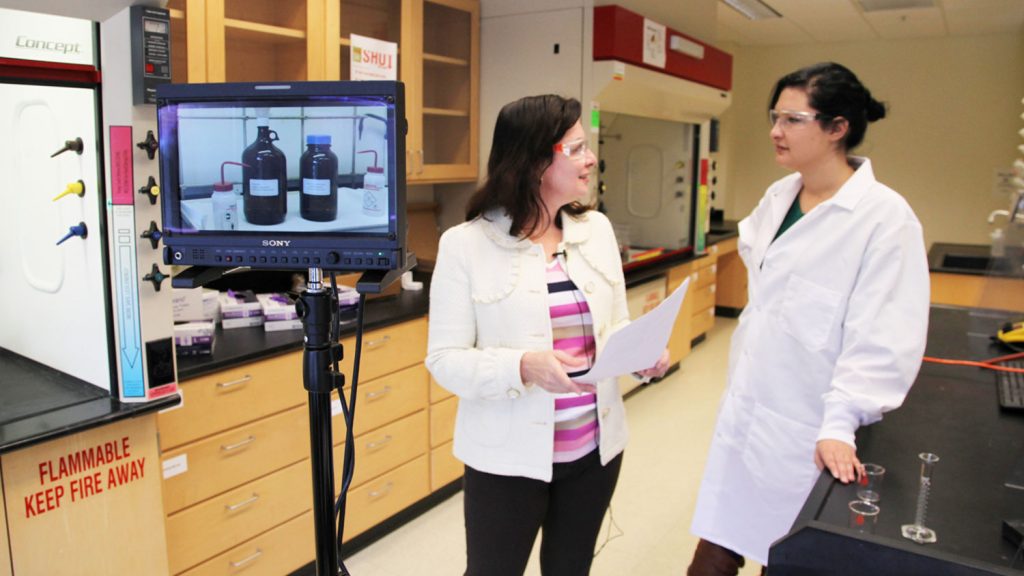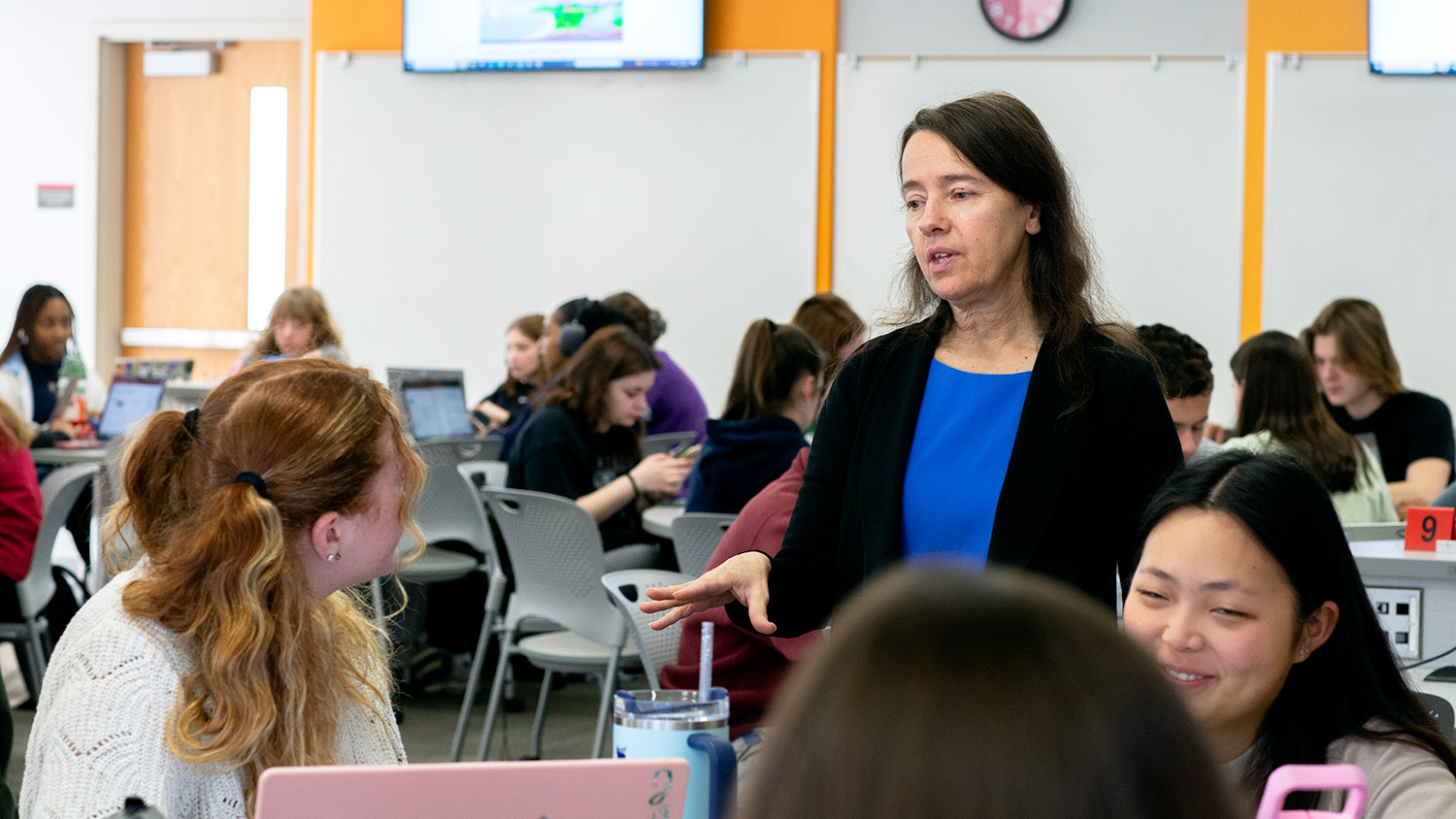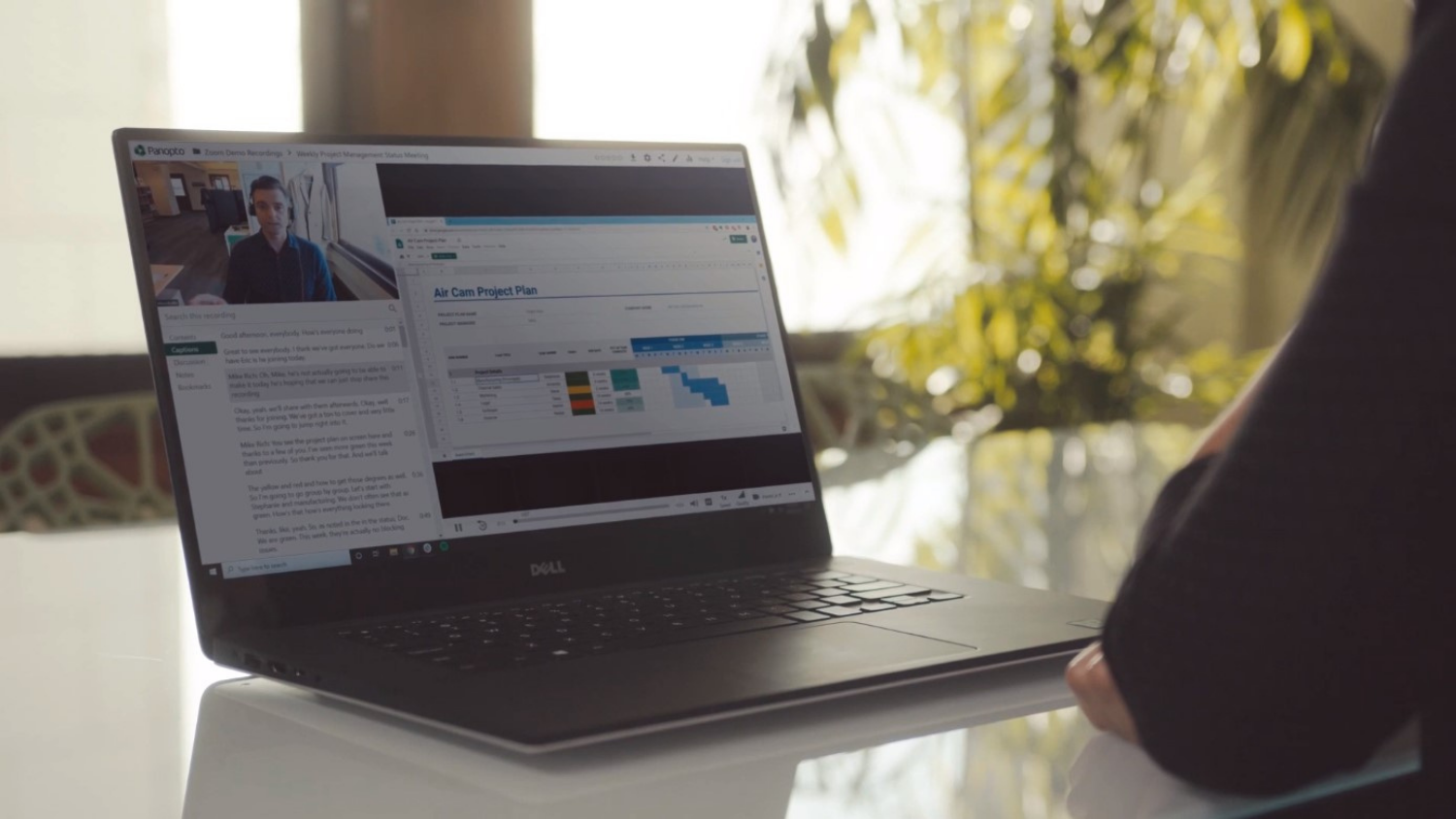Teaching (and Learning) Through Technology

Deb Littlejohn admits it can be difficult to keep college
students – especially more than 100 of them – interested in particular courses.
That’s why the graphic design professor turned to DELTA for help shaking the
stigma that all theory courses are, well, boring.
She won a DELTA Grant last year that will bring her graphic design theory course textbook to life and, she hopes, engage her students in an entirely new way.
“We’re using augmented reality to enhance the course
material,” Littlejohn says. “The textbook is only a few years old, but a book
goes out of date as soon as it’s published.”
She’s using her grant – aptly titled “If This Is
Theory, Why Isn’t It Boring?” – to develop an immersive learning tool that
will serve as a walking, talking study guide.
“Because a lot of what we’re discussing in class is visual,
these images in the textbook can serve as triggers for the augmented reality
experiences,” she says. “So students will use their mobile devices to activate
the content [by pointing their phone cameras at certain images], and they’ll
get this little figure that serves as a ‘guide on the side’ walking around on
the pages helping them focus on certain theoretical concepts. It’s really
cool.”
There also will be a magnifying glass feature that enlarges
small images to show detail, as well as quizzes, pop-up videos and other
interactive content.
Littlejohn’s course is a general education requirement, so
nearly half the students enrolled are not design majors. She says in addition
to better engaging her students, she hopes this new instructional approach also
will help non-majors better understand terminology and concepts they may not be
familiar with.
This is her second DELTA Grants experience, and she says
that the success of her first go-round (which led to the development of the
first online DELTA course offered by the College of Design) inspired her to
apply for another. Her new course will be offered in the fall.
“The really nice thing about the grants is that DELTA forms
a team for you to work on your project,” she says. “They manage the time frame,
the weekly meetings, the deliverables and things like that. They also help with
the technology development and explore possibilities for AR platforms. For my
course, they’re developing an app. It’s amazing.”
The DELTA Grants program offers several different types of
grant opportunities, and all faculty are eligible to apply. DELTA encourages
projects that serve the needs of a significant number of students and align
with department and college goals. Teaching an online or distance education
course is not a requirement.
In fact, a number of faculty have employed DELTA Grants to
improve existing in-classroom courses, especially those with hundreds of
students.
“We offer the grants program as a way to empower faculty,”
says Daniel Davis, associate director of instructional design and development
at DELTA. “It can be cumbersome to really engage students when you have 300 in
a large lecture hall. So we work with faculty to help them think it through.”
The approach varies from course to course, Davis says. In
one example, the DELTA team might work with an instructor to “flip” a course so
that lectures and other content live online to better prepare students for the
classroom and allow faculty to better engage with them.
Or they’ll create content that’s accessible through the
students’ mobile devices, cleverly employing a familiar technology to increase
classroom engagement.

“We have a wide variety of grants, the majority of which are
course-based, but we also have grants for faculty fellows, who join us in
helping other faculty,” Davis says. “No matter what grant we award, it’s always
tailored to the specific needs of the faculty and students.”
There are six types of DELTA Grants, from “rapid design course grants” that enable faculty to quickly produce quality online and distance education courses to “blended learning grants” that combine the best of face-to-face and online learning practices.
“It all starts with an instructional challenge,” says Cathi
Dunnagan, DELTA lead instructional designer. “So it could be something like a
foundational course that needs to be redesigned, or a faculty member who is
teaching an online class for the first time and needs to get it developed
quickly. In the end, we want them to have the best instructional design.”
Interested in learning more or applying for a DELTA Grant? Here are some key resources and upcoming opportunities:
- The DELTA Grants Showcase will spotlight completed projects in a digital interactive poster session. DELTA Grants teams will be on hand to discuss their projects during the event, which takes place 2-4 p.m., Monday, March 25, in the Hunt Library Teaching and Visualization Lab on Centennial Campus.
- DELTA is offering information sessions and group consultations in March and April.
- The DELTA Grants Overview RFP is now available online.
- The proposal submission system will be open from April 8 through May 17.
“With DELTA Grants, you don’t just get financial support,” Littlejohn says. “You get your own team to collaborate with, develop technologies and find solutions. It’s a really wonderful partnership.”
This post was originally published in NC State News.


